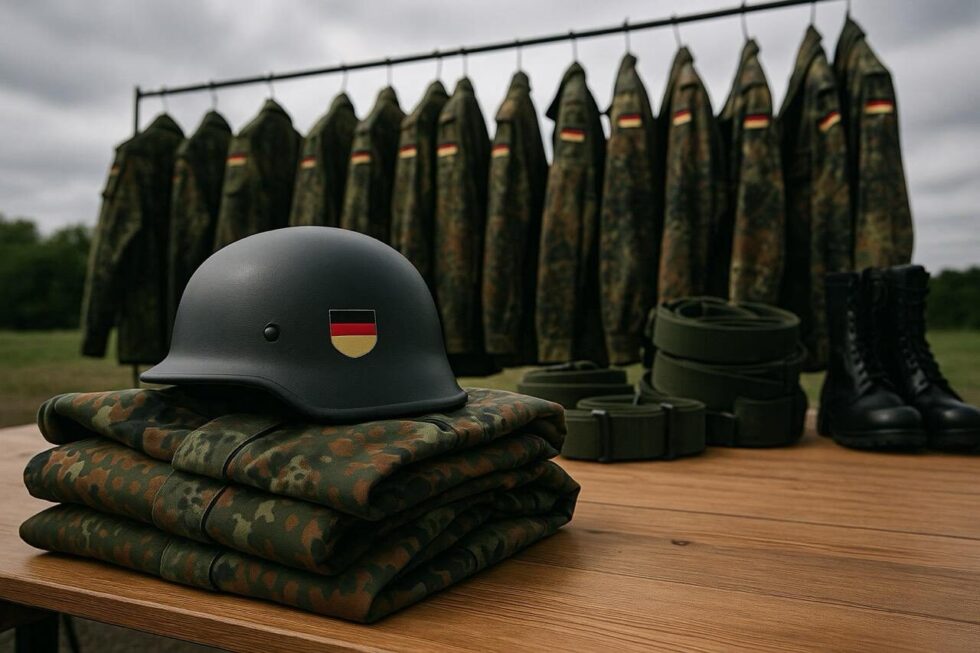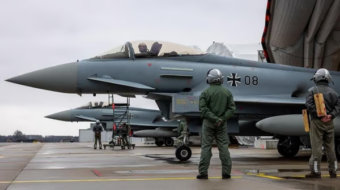Will compulsory military service return in Germany

More than 14 years after the suspension of compulsory military service, Germany is preparing a new law on national service. The main goal is to strengthen the Bundeswehr and ensure that the country can meet its NATO obligations and provide for national defense. Currently, around 182,000 soldiers and officers serve in the German armed forces, a figure deemed insufficient for both alliance duties and crisis response. Defense Minister Boris Pistorius aims to raise troop numbers to at least 260,000 by 2035, although previous recruitment campaigns have failed to deliver the expected results, reports G.business citing Tagesschau.
How the new law is expected to work
According to the draft law, starting next year all young men and women will receive a questionnaire. For men, completing it will be mandatory, while for women it will remain voluntary. The form will assess interest in serving in the Bundeswehr. Those deemed suitable will then be invited for medical examinations.
Pistorius argues that this system will enable “more than 100,000 additional service members to be trained and added to the reserve by the end of the decade.” Combined with those still in the “old reserve,” the total could reach around 200,000 reservists.
However, he warned that if these numbers cannot be achieved through voluntary means, “a partial reintroduction of compulsory service would have to be considered.” At the same time, he rejected demands from CDU/CSU politicians to include fixed numerical targets in the law, citing limited training capacities and accommodation in barracks.
Criticism from the opposition
The CDU/CSU doubts whether the law in its current form will work. Prominent CDU politician Norbert Röttgen declared: “On the basis of this bill, Germany will not become capable of defense.” He emphasized that the lack of clear deadlines and figures prevents effective monitoring of progress.
Röttgen pointed to Sweden as an example, which is even mentioned in the coalition agreement. In Sweden, concrete annual quotas for soldiers are set, and if not enough volunteers step forward, conscription is reintroduced until the target is met. In his view, Germany’s draft law ignores this principle.
Similar criticism came from Green Party parliamentary leader Katharina Dröge, who described the law as a “failed compromise.” While the Greens support the principle of voluntarism, she argued that the final draft reflects “a declaration of mistrust towards young people.” As a result, the Greens are unlikely to support it in the Bundestag.
Views from military associations
Military associations also voiced skepticism. Patrick Sensburg, president of the Bundeswehr Reservists Association, warned that “the mere obligation to fill out a questionnaire” would not be enough to solve the personnel problem. He pointed out that troop levels have remained at around 180,000 for years, even though the government once set a target of 203,000.
André Wüstner, head of the Bundeswehr Association, added that while the new bill represents “a step forward compared to the last legislative period,” it still “falls short of the strategic challenges of recruitment and retention.”
Protests in Cologne
Meanwhile, anti-war activists staged demonstrations. The group Rheinmetall Entwaffnen organized a protest in front of the Bundeswehr’s main career center in Cologne. Its spokesperson, Luca Hirsch, declared: “We are here today to clearly say – we are not ready for war.” The group announced a week of anti-militarist actions across several cities.
Germany’s new national service law has already sparked heated debate. It aims to strengthen the Bundeswehr with a voluntary recruitment system, but opposition parties highlight its lack of binding targets and deadlines. Military associations doubt its effectiveness, citing years of unsuccessful recruitment drives. Activists, meanwhile, warn of creeping militarization and have launched street protests. As the Bundestag prepares to debate the law, its real test will be whether it can actually deliver the numbers needed to ensure the country’s defense readiness and fulfill NATO commitments.
Stay connected for news that works — timely, factual, and free from opinion — and insights that matter now: Emine Erdoğan urges Melania Trump to help children in Gaza
